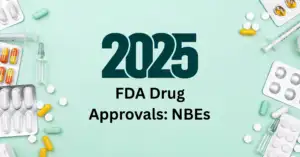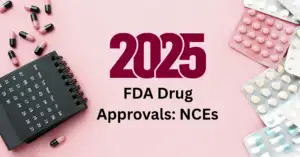In pharmacovigilance product complaints pertain to the warnings or reports received by regulatory agencies, pharmaceutical manufacturers, or healthcare specialists concerning any issues, or problems connected with the quality, safety, efficacy, or usage of a medicine. Different sources are a reason for the arising of these complaints such as patients, providers of healthcare, pharmacists, or even internal quality control processes within pharmaceutical manufacturers. Pharmacovigilance with pharmaceutical manufacturers implies the monitoring and attending the complaints of the products for ensuring efficacy, safety, and quality of medicines. Complaints of products are very seriously taken in pharmacovigilance as they can imply potential threats to the safety of a patient or flaws in the manufacturing, distribution, or medication usage. These complaints are necessary to ensure that the medication monitoring is ongoing in the marketplace and detect any trends or arrays that might denote a necessity for further action or investigation.
When product complaints are received, pharmacovigilance teams follow established processes to collect, assess, and document the information. This is the inclusion of the complaint investigation for determining its validity, seriousness, and potential impact on the safety of a patient. Subject to the findings, measures might be taken such as issuing communications of safety, updating labeling of product, performing further studies, or even initiating the recall of a product if essential.
The pharmacovigilance system in the global clinical trials monitor study related complaints reported by the participating subjects and the investigators from all the worldwide participating study sites, ensuring a comprehensive understanding of adverse reactions and product quality issues. Through global clinical trials, product complaints in pharmacovigilance are analyzed across diverse populations, aiding in the identification of rare or regional adverse events and their incidence. These reported adverse drug reactions and reported to the regulatory authorities.
Certain types of product complaints commonly found are detailed below:
- Adverse Drug Reactions (ADRs): Harmful or unwanted reactions occurring on the administration of a specific medication such as vomiting, headache, dizziness, or more dangerous reactions like anaphylaxis.
- Product Quality Complaints: These are complaints pertaining to the medication quality, such as appearance issues (e.g., discoloration, foreign particles), packaging (e.g., broken seals, incorrect labels), or efficacy (e.g., medication not working as expected).
- Medication Errors: Complaints about errors in prescribing, dispensing, or administering medications. This could include incorrect dosages, wrong medications given to patients, or confusion about instructions.
- Drug Interactions: Complaints linked with medication interactions, where taking one medication along with another reduces the efficacy of one or both medication or causes an adverse reaction.
- Usage Off-label: Complaints about the medication usage by inappropriate age groups or unapproved indications not approved by regulatory authorities.
- Counterfeit Medications: Complaints may arise due to the presence of harmful substances or not having the proper active substances leading to falsified or counterfeit medications.
- Device-related Issues: Some particular devices come with medications for administration, such as insulin pens or inhalers. Complaints could imply malfunctioning or difficulties in using these devices.
- Packaging Issues: Complications with the medication packaging, such as obstacles in opening, non-working child-resistant features, or inadequate usage instructions.
- Lot or Batch Issues: Complications pertaining to a particular lot or batch of medicines, such as contamination during production or distribution.
- Route of Administration Issues: Complaints about medication administration difficulties via its expected route, such as challenges with injections or intravenous lines.
In assumption, in pharmacovigilance product complaints involve a variety of concerns such as ADRs, concerns pertaining to product quality, errors in medication, and more. These complaints are necessary for ensuring the safety of a patient and the medication’s effectiveness in the marketplace. Via appropriate actions and detailed investigation, teams of pharmacovigilance play a critical role in monitoring and addressing these complaints for safeguarding the health of public.





